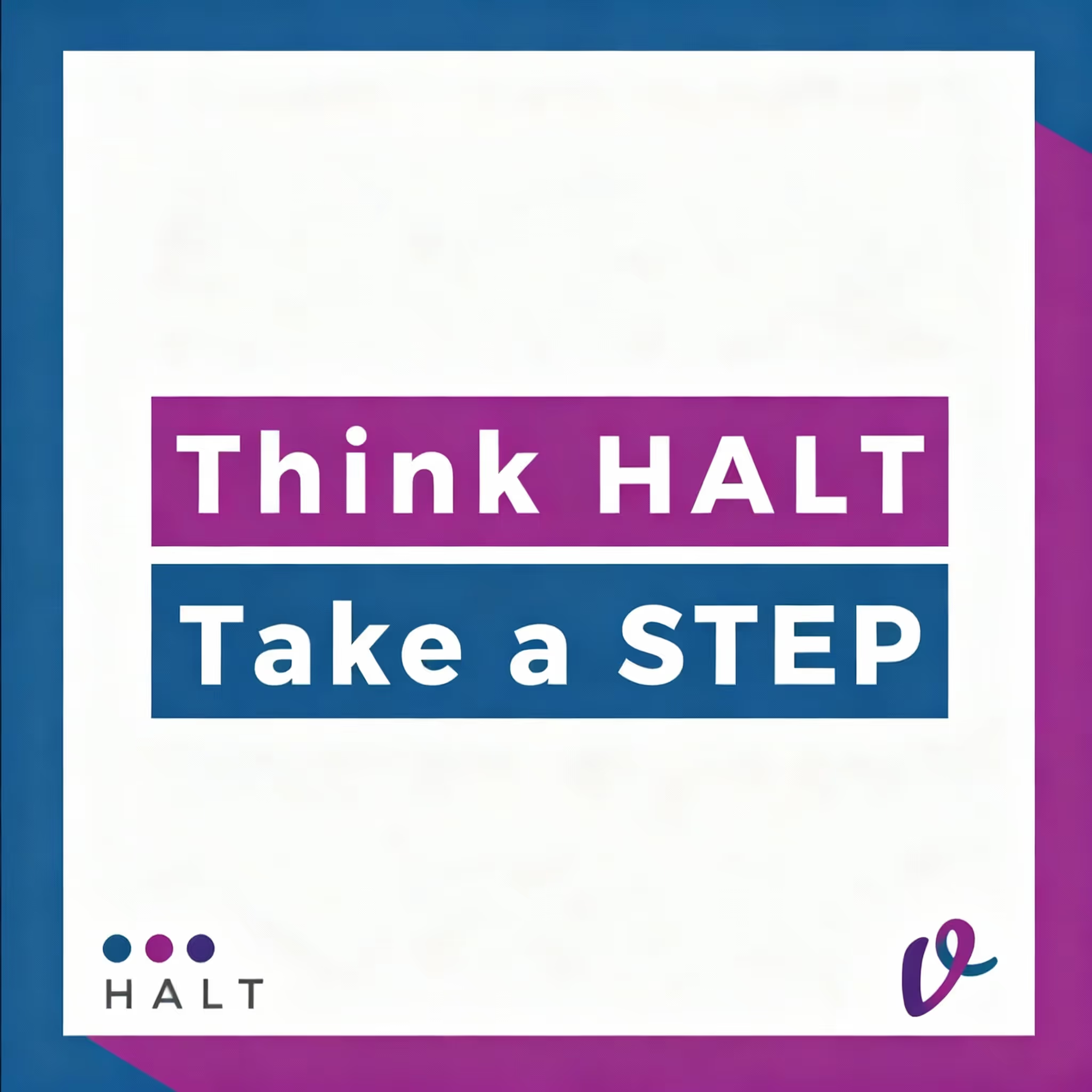VetLed HALT Campaign
The VetLed HALT Campaign reminds veterinary professionals to pause, plan, and prioritise rest by recognising when they are hungry, angry, late, or tired — key factors that impact wellbeing, performance, and patient safety. It encourages teams to embed self-care and accountability into daily practice to build safer, more resilient workplaces.


A simple tool that puts a spotlight on the physical and mental elements that commonly affect wellbeing and performance.
What is HALT?
HALT is a self-care acronym and reminder to pause — to plan and prioritise the daily breaks we all need. It highlights the key factors that can negatively affect wellbeing and performance:
- Hungry and/or Thirsty
- Angry and/or Anxious
- Late and/or Lonely
- Tired
These states make us more vulnerable to errors and stress. Recognising and addressing them helps improve focus, safety, and overall team performance.
Background
Inspired by a campaign from Guy’s & St Thomas’ NHS Foundation Trust, VetLed adapted HALT for the veterinary profession, recognising that vets experience similar pressures as human healthcare workers.
In collaboration with Dr. Mike Farquhar, Consultant in Sleep Medicine, the campaign reinforces the importance of physical and mental wellbeing in veterinary teams. VetLed’s vision is to inspire, create, and champion positive veterinary culture — for people, patients, and the profession.
“Unless critically ill patients require your immediate attention, our patients are always better served by clinicians who have had appropriate periods of rest during their shifts.”
— Dr. Mike Farquhar, Guy’s & St Thomas’ NHS Foundation Trust
Why HALT Matters
The HALT factors directly affect how we feel, function, and perform — influencing both patient safety and clinical quality. HALT encourages veterinary professionals to prioritise their own wellbeing alongside their patients’.
Self-care is anything but selfish.
The Three Ps: Plan, Prioritise, Pause
Implementing HALT effectively means making breaks part of daily structure:
- Plan – Schedule team breaks at the start of the day. Hold each other accountable.
- Prioritise – Short breaks improve performance, safety, and morale. Recognise HALT factors early.
- Pause – Actually take your break. Support each other. Leaders should lead by example.
Teams that are not hungry, tired, or anxious perform better, safer, and more productively.
How to Do It
Morning Huddle: Start each day with a short discussion involving the team to set expectations, share concerns, and build accountability.
Break Planning: Map out breaks early to make workloads more manageable.
Accountability: Check in with yourself and others — are you taking your breaks? Leaders can reinforce the culture by modelling this behaviour.
Conclusion
The HALT Campaign promotes simple, actionable steps to improve wellbeing and reduce error through rest, self-awareness, and teamwork. By embedding HALT into daily practice, teams build a safer, more supportive workplace culture.
For more information, visit vetled.co.uk or contact info@vetled.co.uk.
Follow: @VetLedteam on social media.


